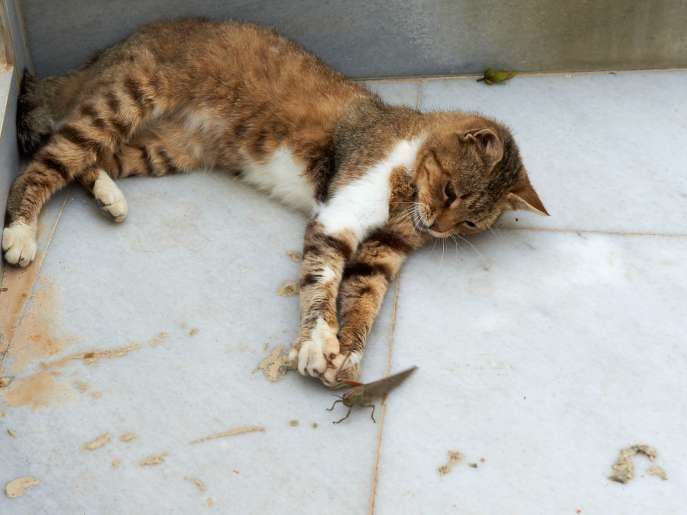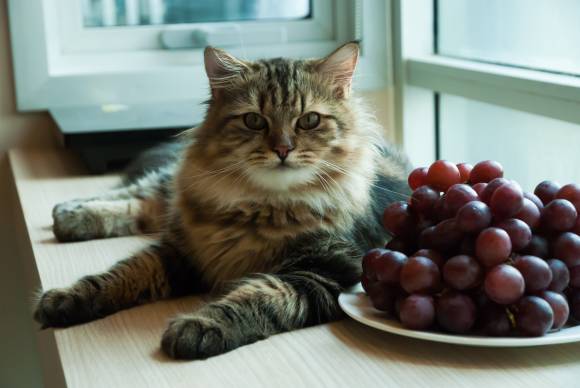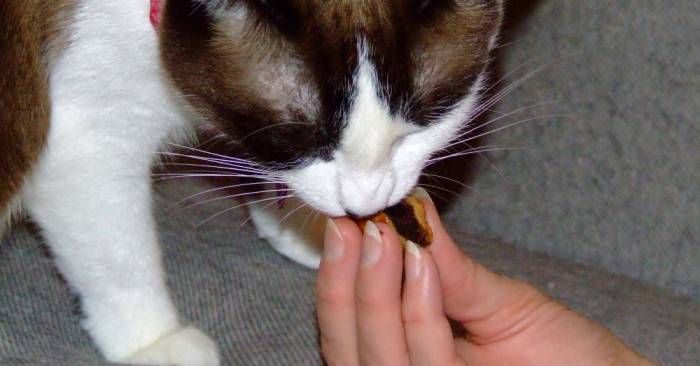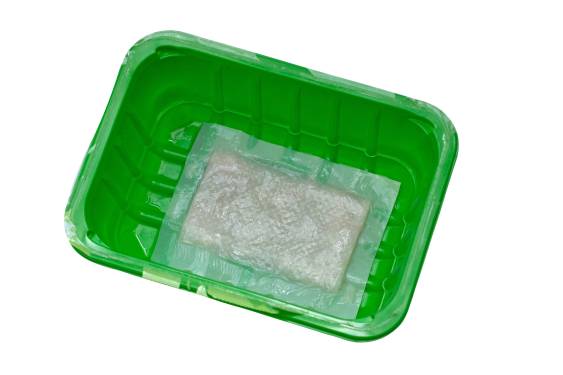
Connect with a verified veterinarian in minutes. Licensed vets are available 24/7 to answer your questions. No need to worry about your furry family member.
Cats, whether indoor or outdoor, love to play with just about anything. When they see a string pulled across the floor, the temptation is too great not to pounce! The same goes for bugs, including crickets.
Have you ever watched crickets when they’re being chased? These bugs jump and run in an attempt to escape, bringing out the cat’s natural hunting instincts. This is the very reason cats find crickets (and other insects) so tempting! Plus, some cats seem to relish those occasional crunch cricket snacks. But can a cat get sick from eating crickets?
What are Crickets?
Crickets are a type of insect, and there are over 900 species of these bugs around the world. The cricket family has relatives from lower Alaska all the way down to the tip of South America. That’s an extremely wide range.
Some people often mistake crickets for grasshoppers, which is normal especially considering these insects are distantly related. A cricket’s body is shaped like a cylinder, and they have rounded heads with long antennae. They also have very long, strong hind legs and thighs. Their color depends on the type of cricket; with common colors beingbrown, tan, and black..
You may be wondering if crickets are toxic to cats. We’re happy to let you know they’re not; however, there are a couple of health issues crickets can cause cats.
Cat Health Issues & Crickets
So, that’s good news—crickets are not toxic to cats! Eating a live cricket every now and then shouldn’t cause a problem for your fur baby. However, there is a small chance that crickets could cause:
Physaloptera infection: Crickets, along with several other insects and small animals, may carry , which is a parasite. When a cat (or dog) is infected with this parasite, it can take days or months before symptoms appear. When a cat eats an infected cricket, the cricket can then pass the larvae onto the cat. The larvae then live in the cat’s gut where they become adults and repeat the life cycle of this parasite. Some animals show no symptoms of infection whereas others may have damage to their stomach lining resulting in vomiting, loss of appetite, and blood loss.
Bowel obstruction: if a cat eats too many crickets at one time, then the exoskeletons of these bugs can become trapped in the stomach or the intestines. This can lead to a bowel obstruction, which can be life-threatening. Symptoms of bowel obstruction in cats include vomiting, a painful abdomen, constipation or diarrhea, lethargy, lack of appetite/drinking, drooling, lip smacking, and excessive swallowing. If you notice these symptoms, it’s time to call the vet immediately.

Review symptoms, medications & behavior to keep your pets healthy with a Vet Online in just minutes.
Ask a Vet Live NowSumming It Up
For the most part, if your cat just eats a couple of crickets every so often, then she should be OK. It’s always a good idea to monitor your cat’s health every day which will help you to spot any problems early on. After all, you may not always be aware of exactly what she’s been eating. If you notice your cat experiencing any of the symptoms mentioned above, then you must call your vet straight away.
Connect with a verified veterinarian in minutes. Licensed vets are available 24/7 to answer your questions. No need to worry about your furry family member.

Rebecca MacMillan, BVetMed BSAVA PGCertSAM MRCVS
This article has been reviewed and approved by an independent Veterinarian: Rebecca is a companion animal vet who has always had a passion for writing and client communication. Since her graduation from the Royal Veterinary college in 2009 she has gained a wealth of experience in first opinion small animal practice, in both clinical and managerial roles. She currently works in the South West and deals with a variety of routine and emergency appointments, but particularly enjoys medicine cases. Outside of work and writing, she enjoys spending time with her family, including her bouncy flat coated retriever George!
Review symptoms, medications & behavior to keep your pets healthy with a Vet Online in just minutes.
Ask a Vet Live Now




